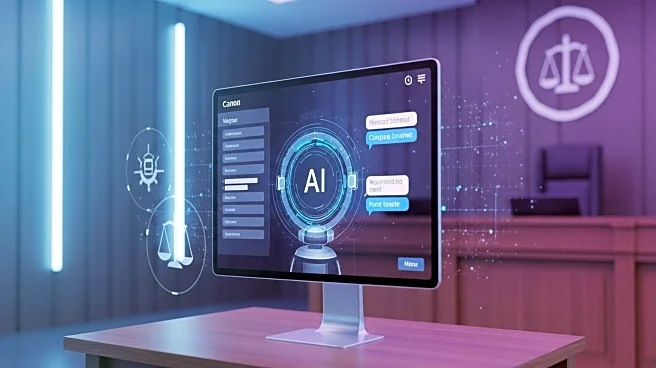What's Happening?
AI chatbots like ChatGPT are being used by individuals to assist in court cases, with some achieving success in small-claims disputes. However, legal professionals have raised concerns about the accuracy of AI-generated court documents, which often contain inaccuracies and faulty reasoning. This phenomenon, known as 'hallucination,' occurs when AI models generate false or misleading information presented as fact. Some litigants have faced penalties due to these inaccuracies, including sanctions for filing motions with fabricated citations. Despite these challenges, some self-represented litigants have found AI tools helpful in organizing and preparing legal documents.
Why It's Important?
The use of AI in legal proceedings highlights the potential for technology to democratize access to legal resources, especially for individuals who cannot afford traditional legal representation. However, the inaccuracies associated with AI-generated legal advice pose risks, including potential legal penalties and the undermining of court processes. This development raises questions about the reliability of AI in sensitive areas like law, where precision and accuracy are crucial. The broader implications include the need for legal professionals to adapt to AI tools while ensuring the integrity of legal proceedings.
What's Next?
As AI continues to be integrated into legal processes, there may be increased scrutiny and regulation to ensure the accuracy of AI-generated legal advice. Legal professionals and courts might develop guidelines for the use of AI in legal filings, and there could be a push for AI developers to improve the reliability of their models. Additionally, educational initiatives may emerge to help self-represented litigants use AI effectively without compromising their legal standing.
Beyond the Headlines
The ethical implications of AI in legal settings are significant, as reliance on AI could lead to a devaluation of human expertise and judgment. The potential for AI to perpetuate biases and inaccuracies also raises concerns about fairness and justice in legal proceedings. Long-term, the integration of AI in law could reshape the profession, requiring new skills and approaches from legal practitioners.











